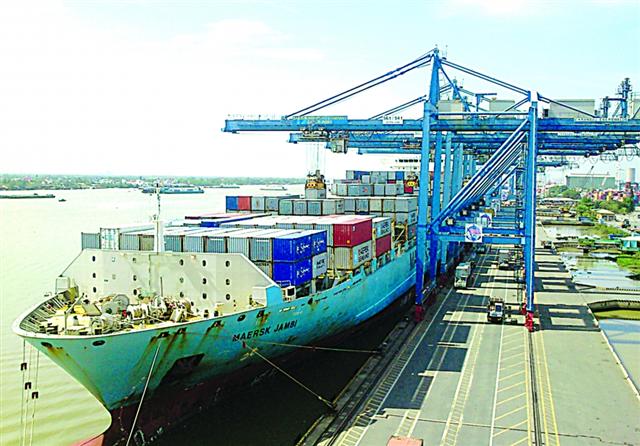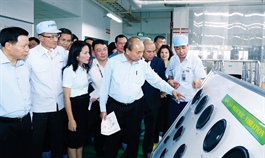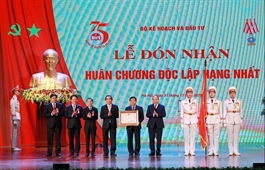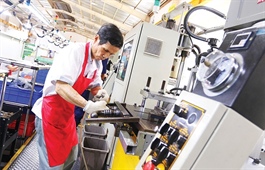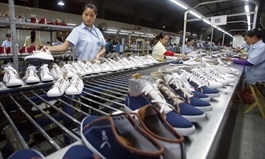Free trade deals pile Vietnamese goods onto shelves around the world
Free trade deals pile Vietnamese goods onto shelves around the world
With 13 free trade agreements (FTAs) in effect, Vietnamese businesses are benefitting from the reduction and or elimination of tariff barriers, paving the way for additional Vietnamese products to reach global markets.
|
Since it joined the World Trade Organization (WTO) in 2007, Vietnam has been involved in negotiation and signature of 16 FTAs, of which 13 have already taken effect and three are under negotiation.
According to Minister of Industry and Trade Tran Tuan Anh, each FTA affects Vietnam’s trade in a different way, but all affect the Vietnamese economy by expanding import and export markets. Specifically, Vietnam’s trade values with partner countries have increased, while its traditional markets have also been strengthened.
Vietnam exported goods worth US$123.11 billion to traditional FTA markets in 2019, compared to only US$7 billion in 2004 when it had only two FTA partners. Vietnam is benefitting greatly from two recently implemented new-generation FTAs - the Comprehensive and Progressive Agreement for Trans-Pacific Partnership (CPTPP) taking effect on January 14, 2019, and the EU-Vietnam Free Trade Agreement (EVFTA) in effect since August 1, 2020. According to the Ministry of Industry and Trade’s Multilateral Trade Policy Department, Vietnam enjoyed a trade surplus of US$1.6 billion with CPTPP countries last year, from a deficit of US$0.9 billion in 2018. Vietnam’s exports to CPTPP member countries in 2019 registered positive growth compared to the previous year. Trade with some new markets, including Canada and Mexico, increased sharply - 29.9 and 27.6 percent, respectively, immediately after the agreement went into effect.
Since the EVFTA came into effect, opportunities to export goods to the EU are also yielding initial benefits for Vietnamese enterprises, with many exporters to this market reporting a sharp increase in both turnover and prices.
Immediate benefits from trade pact with EU
According to the Ministry of Industry and Trade’s Agency of Foreign Trade, as of October 12, authorized organizations have granted about 23,800 sets of certificates of origin (C/O) Form EUR.1 to Vietnamese products worth a total of US$963 million, allowing them to be exported to 28 EU countries. In addition, businesses exporting goods to the EU self-certified the origin of goods for more than 660 consignments worth about US$2 million. Agricultural products are benefiting the most from the agreement. One month after the EVFTA took effect, the turnover and prices of many agricultural products exported to the EU increased sharply. Specifically, coffee exports to the EU reached US$76 million in August, up 34.7 percent from July, while the price of Vietnamese rice exports to this market increased US$80-200 per tonne. Vegetable and fruit exports to the EU totaled an estimated US$14.7 million in value in August, up 25.2 percent from the previous month, while seafood exports to this market in August grew 10 percent over July.
Nguyen Thi Thu Trang, Director of the WTO and International Trade Center under the Vietnam Chamber of Commerce and Industry (VCCI), said Vietnamese enterprises are learning to take advantage of the EVFTA, as clearly reflected in the results.
The EU is the world’s second largest market, importing goods worth about US$2.338 trillion annually, but Vietnam accounted for only two percent despite the exemption of 42 percent of Vietnam’s export turnover to the EU from taxes, in accordance with the Generalized System of Preferences (GSP). According to the Ministry of Industry and Trade, strong market opening commitments and commitments to abolishing almost 100 percent of import duties under the EVFTA will provide Vietnam with a greater opportunity to increase its export value.
| The Ministry of Industry and Trade has implemented 24 level-3 administrative procedures and applied a self-certification of origin mechanism to optimally support exporters. This is considered an effective solution that creates favorable conditions for businesses to minimize the number of documents and declared data and shorten waiting time, thereby facilitating exports of Vietnamese commodities. |


